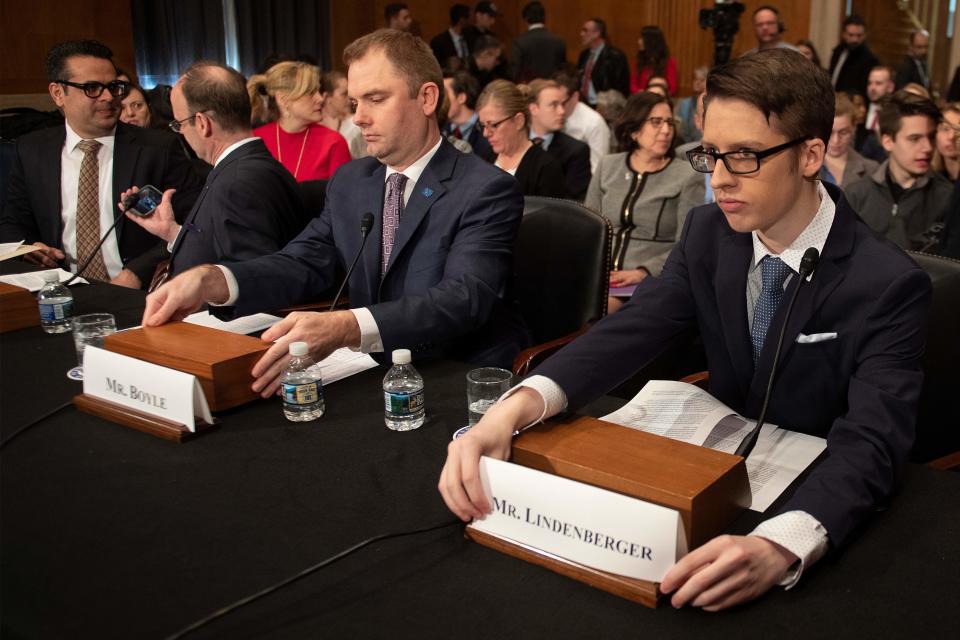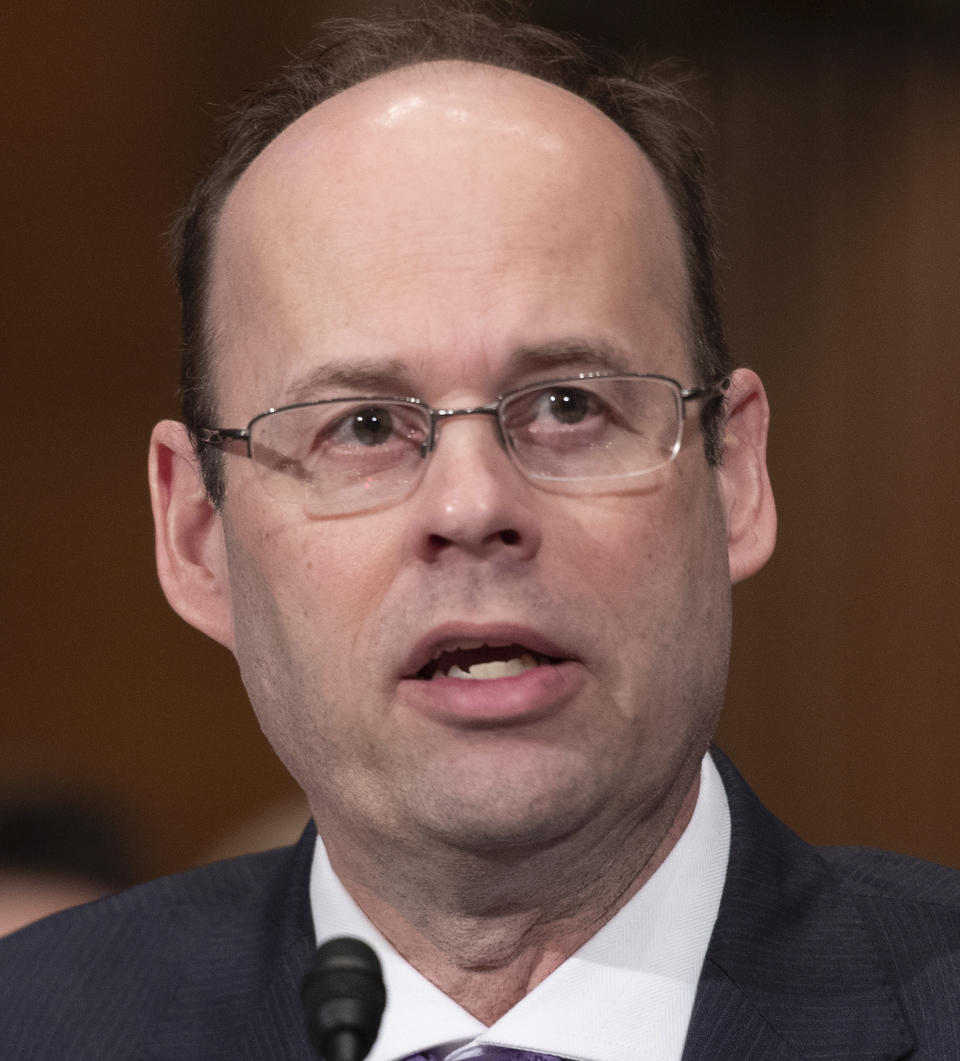Anti-vaxxers pack hearing as senators investigate viral epidemic — of fear
WASHINGTON — Anti-vaccination activists, some with their (presumably unvaccinated) children, packed the Dirksen Senate Office Building Tuesday morning for a hearing that they hoped would vindicate, or at least recognize as legitimate, their fear that protecting their families from measles runs the risk of something worse, including autism and other disorders.
As the doors closed on the room where the Senate Committee on Health, Education, Labor and Pensions was meeting, a woman could be heard pleading to be allowed in to give her side of what has become a heated, and potentially dangerous, controversy.
That hope would be quickly dashed. The committee’s chairman, Sen. Lamar Alexander, R-Tenn., recalled the polio epidemic of his youth, before the invention of a vaccine for the disease, which can cause permanent paralysis and respiratory failure. “I had classmates who lived in iron lungs,” he said. “Vaccines save lives.”

The hearing comes at a time when mistrust of vaccines has been inflamed by suspicion of government and of science and has spread — virally, you could say — by social media. The Centers for Disease Control and Prevention says that 11 states are currently experiencing measles outbreaks. Measles was declared eradicated in the United States in 2000, but herd immunity — a community’s collective resistance to disease — has been eroding as parents have opted out of vaccinating their children.
The anti-vaccination movement has succeeded in “literally bringing back plagues of the past,” lamented one witness, John G. Boyle of the Immune Deficiency Foundation.

Vaccines came under suspicion in the last couple of decades, based largely on a debunked study that linked them to autism. Anti-vaccine propaganda borrows the rhetoric of libertarianism to reject mandatory immunization of schoolchildren. Many of those attending the hearing wore T-shirts and hats that advertised those views:
“I call the shots: My body, my choice. My kids, my choice.”
“Make Vaccine Manufacturers Liable Again.”
To counter the spread of misinformation, the witnesses called for greater funding for public health measures, with one of them referencing the push to increase CDC funding by 22 percent by 2022. Dr. Saad B. Omer of Emory University called the organization a “national-treasure.” Sen. Elizabeth Warren, D-Mass., noted that the Trump administration had cut funding for public health.
Dr. Jonathan A. McCullers, chair of pediatrics at the University of Tennessee Health Science Center, criticized states that allow parents to opt out of immunization programs on the basis of “religious and philosophical objections.”
Alexander asked McCullers to definitely say whether the measles, mumps and rubella vaccine causes autism. The notion was introduced in a 1998 Lancet paper by Andrew Wakefield, a British gastroenterologist. Wakefield’s research was discredited, and the paper was eventually retracted and refuted. Wakefield himself has been stripped of his medical license.

Under questioning from Alexander, McCullers said there is “absolutely no evidence” that the MMR vaccine causes autism. All four of the other witnesses agreed with that assertion.
The lone voice of skepticism was the libertarian-leaning Sen. Rand Paul, R-Ky., an ophthalmologist. “I am not a fan of government coercion,” Paul said. He said that he had vaccinated his children and, on the whole, thinks vaccines are safe, but that “informed consent” is the appropriate approach. “Force is not consistent with the American story,” he said. There was clapping from the anti-vaccination activists in the hearing room after Paul spoke. One of the activists was escorted out by an officer of the Capitol Police.
The hearing was an unusual display of bipartisan confidence in settled science and fact. “As with many topics, just because you found it on the internet doesn't mean it's true,” Alexander said in his opening statement. The culpability of the internet and social media companies — Twitter and Facebook in particular — was a recurring theme.
Ethan Lindenberger, an 18-year-old from Ohio, grew up with a mother who was an anti-vaccine advocate. As he began to question her assumptions, he found that she quickly fled to the safety of her online community, where those incorrect assumptions were quickly and vigorously reasserted. “These sources that spread misinformation should be a primary concern for the American people,” Lindenberger testified.

He says he has now received vaccinations.
At one point, Alexander asked Lindenberger where his mother got most of her information on vaccines. He answered that it was on Facebook. Alexander then asked where Lindenberger had gotten his own information about the safety of vaccines.
Lindenberger laughed. “Not Facebook,” he answered, saying that he tried to read reputable sources.
_____
Read more from Yahoo News:



